Barely into the new year, and we have our first scandal with Seventeen, who had long been held up on a pedestal for being ‘unproblematic.’ At the emergence and spread of the video, there has been debate on whether or not the N-word was said, and if the member in question knew what he was doing. It has led to Korean translators posting pictures of their Korean passport along with their translations, and an intense/heated discussion that not only touched on Seventeen, but also the use of the word in K-Hip Hop.
That being said, do you think the N word was said? What are your thoughts on its use in Korean music and pop culture? What do you think of the response from K-pop fans, and what do you think can be done to address this issue?
Lauren M.: Do I think that the N word was said in this clip? No. But do I think a play on words was made that alluded to the N-word? Yes.
I’m confident that most Koreans who are familiar with rap/Western pop culture know that the N-word is inflammatory and a slur now, because of outcries by Western fans. The N-word used to be all over KHH up until around 2014, but it’s practically non-existent now. That’s pretty hard to ignore. I think those in the scene use wordplay to get around use of the word now, and saying ‘ma naega’ which is what S.Coups said, is one of the ways to do that.
 I do think the kids from Seventeen laughed because they knew what the wordplay was. It was pretty obvious to me. So I think a good question is, now that language-specific alternatives to the N-word have been created in KHH and maybe elsewhere, does it still mean the same thing? They’ve appropriated and gone a step further, I guess, to make it something more uniquely theirs. I personally think that’s what’s worth talking about.
I do think the kids from Seventeen laughed because they knew what the wordplay was. It was pretty obvious to me. So I think a good question is, now that language-specific alternatives to the N-word have been created in KHH and maybe elsewhere, does it still mean the same thing? They’ve appropriated and gone a step further, I guess, to make it something more uniquely theirs. I personally think that’s what’s worth talking about.
Madi: This is my first time I’m aware of this (well second, sort of), but I have to say what was said does sounds the N word…. and we’re talking ending with an ‘er’ and not the we’re trying to make it nice version with the ‘a’ ending. And fair warning, I may be a bit more sensitive to this issue because I do have African American blood running through my veins.
There are so many things to be said about this, so I’ll try and make it short and compiled.
Even dating back before what Lauren mentioned, earlier K-pop songs have used the word… both versions of it. Take a listen to H.O.T.’s “Outside Castle” and Shinhwa‘s “TOP“. Of course, the lines are said by the English rappers, so it might be safe to assume since rappers are the ones who are supposed to be the hip hop element of the group, it’s a sense of imitation since origins of hip hop date back to the United States.
Now here’s the problem, well what I think is the problem: You can’t expect someone from one country to be fully aware and know another country’s history. I would not be surprised that times dating back to slavery in America are not a chapter in a Korean textbooks. But to counter that problem: if you’re trying to imitate something to “sound cool” or what have you, don’t just do it, know what you’re doing/saying. But here’s a problem to that problem: The N word has a nicer variation with dropping the ‘er’ and adding the ‘a’, which is normally used as a friendly greeting, thus if it’s said that way and displayed in songs, someone who doesn’t know could easily think it could translate to “my friend”. Essentially, that’s the modernized meaning yes? You can cycle through all of these and see how they counter each other.
Now, do I think this was said with the intention to offend anyone? No. Was he wrong in saying it? Yes. Was he wrong in saying it even though he might have not known the backstory behind it? Yes. Nowadays with the Internet, you can’t go around and use the excuse “I don’t know.” You know what people say in response to that? “Google it.”
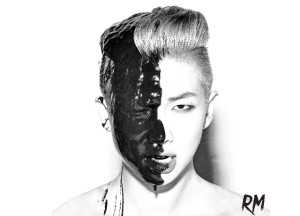 The subject is more sensitive now because of what’s been going on in the United States… so I feel the reaction of K-pop fans is normal. (I actually think this is worse than the Rap Monster issue.) Back in the day (shakes cane), no one batted an eye to this. And I’ll admit, hearing it in songs makes me feel uncomfortable. And I’ll even admit this, “Outside Castle” is my favorite H.O.T. song, but Tony‘s rap just makes me cringe because it’s used. Of course, back then I excused it as they didn’t realize what they were saying.
The subject is more sensitive now because of what’s been going on in the United States… so I feel the reaction of K-pop fans is normal. (I actually think this is worse than the Rap Monster issue.) Back in the day (shakes cane), no one batted an eye to this. And I’ll admit, hearing it in songs makes me feel uncomfortable. And I’ll even admit this, “Outside Castle” is my favorite H.O.T. song, but Tony‘s rap just makes me cringe because it’s used. Of course, back then I excused it as they didn’t realize what they were saying.
What can be done? Education. It doesn’t any plainer than that. And then there’s issues of “Who should be allowed to use the N word?” Simple and best answer: no one.
Cjontai: It’s hard for me to make out exactly what is said in the video since he sounds muffled, so I don’t know how to call it. I honestly feel like the larger issue is fans using the deflective tactic of throwing shade at other idols who are known to have said it instead of addressing why it’s problematic in the first place. Nobody wants to discuss the issue; they’d rather pass the shame stick around.
I know someone is going to toss out the “fix it yourselves since you love saying it” argument because it’s easier to pass blame than accept responsibility. I hate that retort because it’s clear that person is placing fault on American society without taking the historical context of the word into account. It’s almost akin to victim blaming. It’s like telling women “stop saying ‘b*tch’ if you want men to respect you,” or demanding Muslims to change their religion to avoid social persecution.
Black people didn’t create the origin of the word, so who is truly at fault for its existence in the first place? Yes, some black people “reclaimed” the word in an effort to deflect the pain they felt from racists who used it to dehumanize them. My personal experiences with the word keep me from buying into the reclamation defense because I’ve never heard it used as a term of endearment growing up. Truthfully, I think certain entertainers only exploit its use for commercialized reasons, so they can appear more hardcore than what they really are. It’s a cheap excuse, but some people will say or do anything for fame and money. Not my bus, but I try not to judge those who hop on it because I don’t know their personal background with the word.
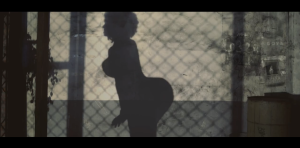 What I don’t understand is why that particular racial slur gets a social pass over other ones. No one is using ch*nk, r*ghead, k*ke, w*tback, or any number of slanderous terms in that manner, but why is that? Is it only because black rappers aren’t using them as terms of expression that they are still deemed too taboo to appropriate? Or is it because those words don’t apply to everyone except the race upon which they demean; therefore, calling myself a “ch*nk” would sound foolish since I’m not connected to Chinese heritage whatsoever?
What I don’t understand is why that particular racial slur gets a social pass over other ones. No one is using ch*nk, r*ghead, k*ke, w*tback, or any number of slanderous terms in that manner, but why is that? Is it only because black rappers aren’t using them as terms of expression that they are still deemed too taboo to appropriate? Or is it because those words don’t apply to everyone except the race upon which they demean; therefore, calling myself a “ch*nk” would sound foolish since I’m not connected to Chinese heritage whatsoever?
People only want to use the N-word because it’s been labeled as slang and therefore excused from being viewed negatively on the basis of being colloquially acceptable. It’s the same reason colorist remarks are given passes. Because a group of people keep insisting those remarks are “jokes,” that means it’s okay. Problem is nobody considers the social ramifications of those attitudes towards minorities. People develop an unseen social bias and subconsciously judge others based on these social beliefs. Sadly, because most people grow up not realizing these micro-aggressive thoughts exist within themselves, they hold a belief that their way of thinking isn’t the problem; it’s the problem of the discriminated group for not thinking the same way they do.
Camiele: If I can be completely honest here, this entire conversation to me is just ridiculous. What it stems from is this childish notion that, “If Black people can say it, why can’t I?” And the answer is simple: because you’re not Black. Full-stop. It boggles the mind why those outside of my ethnic group are just so desperate to be able to say a word that carries such an ugly history. Yeah, Black people use it, a reclamation as has been brought up. But whether as a Black person I agree with its use or not, the fact remains it was a term made for Black people as a means to further dehumanize us, then reclaimed by Black people to assert our power over our own humanity. Regardless of its use within our own community, there’s nothing positive about using the term outside of the community just because one “thinks it’s cool.” Finding ways around saying the word just so you can find a way to covertly say the word and not piss people off smacks of immaturity and an acute desire to not only use a term Black members of your fanbase consider derogatory in someone else’s mouth, it shows a lack of actual care how Black members of a fanbase feel. Yet again, our concerns aren’t relevant. How we feel about the word, its origins, and its current use is irrelevant. The fact that so many people continue to justify and even condone the use of blackface in South Korea ought to make this conversation moot.
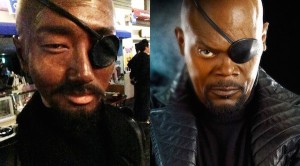 As was mentioned, you don’t hear anyone using any other derogatory terms from other ethnic groups as slang. The reasoning behind those groups not using and/or reclaiming those terms is none of my business. That’s their culture and their decision to banish the word from their vernacular or use it however they see fit. As it’s purely the decision of women to use “bitch” how they feel, and the queer community to use “fag” if they so choose. But dribbling past the lips of someone outside of those communities, you bet your behind it’s meant to degrade.
As was mentioned, you don’t hear anyone using any other derogatory terms from other ethnic groups as slang. The reasoning behind those groups not using and/or reclaiming those terms is none of my business. That’s their culture and their decision to banish the word from their vernacular or use it however they see fit. As it’s purely the decision of women to use “bitch” how they feel, and the queer community to use “fag” if they so choose. But dribbling past the lips of someone outside of those communities, you bet your behind it’s meant to degrade.
The naughty “N” word when viewed from the gaze of someone not of Black American heritage is simply a means to appear more “down” or have more “street cred.” In reality, the use of that word within our own community has zero to do with anybody else. All this talk about “who can use it” is useless to me. The answer to “Since it’s used so freely among Blacks, we should be able to use it too, right?” is simple. No. You’re not Black. You don’t use it. The end. Get over yourself for about thirty seconds and realize what happens in someone else’s culture is not about you. Parts of a culture that exclude you do for a reason: because you’re not part of it. I really don’t care if you’re upset, offended, or just don’t get it. Some things you aren’t meant to get, and some things aren’t meant for you. What a shame. You can’t have a slice of every pie, and the world doesn’t revolve around you. And while some child idol sits there “ke-ke-ing” it up about being semi-cute and finding a way to say “nigger/ga” without actually saying it (Oh aren’t you the clever, cheeky one?) all they’re doing is exposing how childish they are to me. What I don’t understand is why people outside of the Black community are so interested and in such dire need to use that one word in particular anyway. All the words in all the languages in the world, that word is the one people wet their panties and cry their eyes out over. Give me a break.
Hania: It’s sad that my reaction to these sorts of scandals is really just “Here we go again.” It’s really remarkable that people are still desperate to use the word even if they’re not African-American: why the obsession, people? Like Camiele’s pointed out, why are people itching to use this one word for comedic purposes or to gain some sort of street cred?
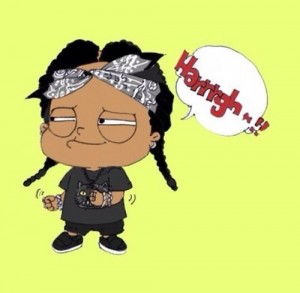 I’d also add that although none of these idols mean to cause offence, they definitely aren’t completely clueless about the word’s true origins. This is evident through the fact that the word has been tweaked to fit the Korean language and also lessen its impact, meaning that people are aware that it is not an appropriate word to use, and therefore can no longer feign ignorance about its implications.
I’d also add that although none of these idols mean to cause offence, they definitely aren’t completely clueless about the word’s true origins. This is evident through the fact that the word has been tweaked to fit the Korean language and also lessen its impact, meaning that people are aware that it is not an appropriate word to use, and therefore can no longer feign ignorance about its implications.But ultimately, with American culture being such a pervasive global force, maybe it’s inevitable that the word will spread without regard for its problematic connotations.
Cjontai: It’s already spread, but the fan response is the most aggravating part. Any time anything problematic pops up, they either deflect blame, create fake apologies on behalf of the idols, tell everyone to stop overreacting, or condemn the ones involved. We’re not talking about toddlers imitating adults by cursing up a storm, yet that’s how people treat idols every time. No one has an issue viewing them as adults when writing fan fics or fetishizing them, but the moment things get remotely serious, suddenly they’re kids who “don’t know any better.”
“We must protect them!” From what? Looking stupid? Fine, then educate them and let them know they don’t have to try so hard to be accepted. Is anyone really going to think less of them for NOT saying that word? No, because they don’t need it. They’ve been successful without it, so why say it in any form? It serves no purpose other than to provoke people into reacting to it. If you need to do that to become popular, that says more about your lack of confidence in your creativity because controversy is the cheapest marketing tool in entertainment.
Otherwise, why say it? To fit into a culture whose people they fuss about resembling whenever they get a slight tan? How are you going to pick and choose what aspects of a culture to imitate when you openly mock it? As Paul Mooney once said, “Everyone wants to be a n*gga, but nobody wants to be a n*gga.”
Camiele: Took the words right out of my mouth, Cjontai, including the wise words of Mr. Mooney.
Sarah: I think everyone’s pretty much covered the main points, so I will just reiterate what I think is most important. I think these young idols (and I say young because the older ones do seem to learn) are acting like immature teenagers from any culture, in that they’re imitating something they think is cool in hopes to be cool by association – in this case American hip hop. They’re actually imitating many different aspects of hip hop and the culture which surrounds it, but the most obvious one is their use of the n-word because we’re all so sensitive to it. Don’t worry, I’m not condoning it, I’m just saying I understand why they are using it.
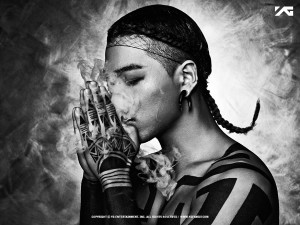 Ultimately then, it comes down to them learning (and perhaps reminding the rest of the K-pop music industry) exactly why that word isn’t ok to use. It’s fine to say, “no, you can’t use it”, and Seventeen may stop but then new young idols will just keep using it over and over, and we’ll keep having this conversation over and over, until we can explain why exactly it is they can’t use it. And I mean we, as fans, should explain to them in as much historical detail as possible where such a word comes from and why it’s taboo.
Ultimately then, it comes down to them learning (and perhaps reminding the rest of the K-pop music industry) exactly why that word isn’t ok to use. It’s fine to say, “no, you can’t use it”, and Seventeen may stop but then new young idols will just keep using it over and over, and we’ll keep having this conversation over and over, until we can explain why exactly it is they can’t use it. And I mean we, as fans, should explain to them in as much historical detail as possible where such a word comes from and why it’s taboo.
So, yes, it’s problematic, but the solution doesn’t lie simply with one side of the problem. The idols should all be aware of what they’re saying and try to be appropriately culturally conscious (especially as they become more and more global), but we, as American fans who know the cultural and historical background, should teach them of our own culture and history. Then they might truly come to understand why the word is offensive, instead of simply following orders to not use it so as to avoid more scandals.
After all, there was a time when it was considered acceptable for anyone to use the word here in the States. We too had to learn why it was an offensive word, and it took awhile since we had to figure it out by ourselves. We should kindly pass along our hard-won knowledge and give our idols a helping hand in being better global citizens, rather than fighting amongst ourselves and coldly criticizing them.
(MNet, Pledis Entertainment, BigHit Entertainment, YG Entertainment)


